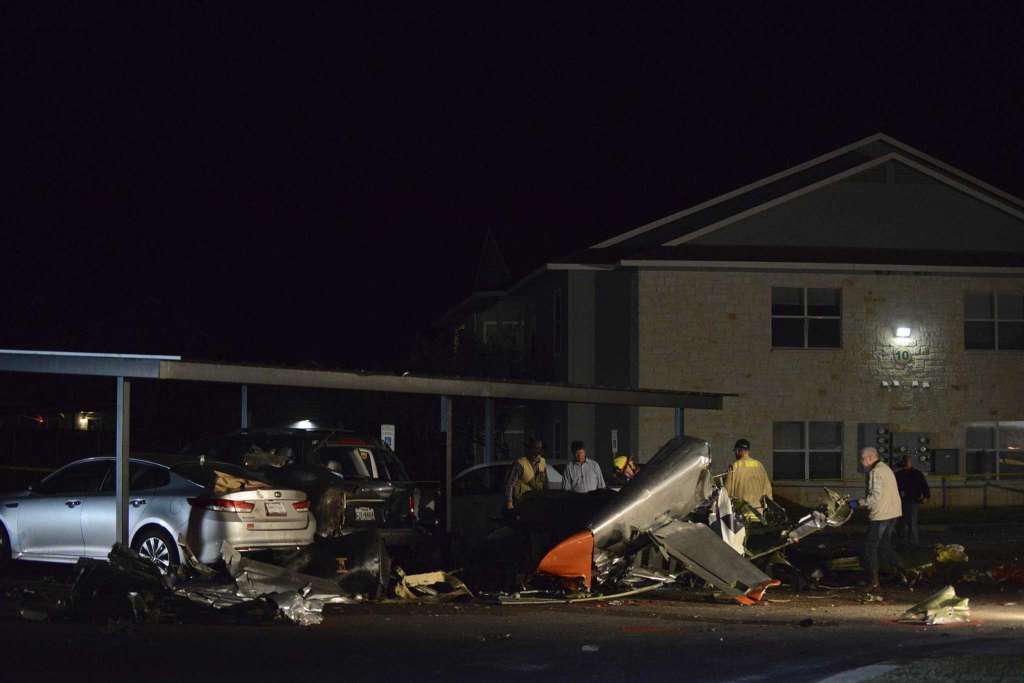At a recent airshow in Fredericksburg, Texas, a P-51D Mustang carrying a veteran pilot from WWII as a passenger crashed into a parking lot.
The 93-year-old veteran, Vincent Losada of San Antonio, was killed along with pilot Cowden Ward Jr. The crash is being investigated by the National Transportation Safety Board and the Federal Aviation Administration.
Ward was flying the Mustang as part of ceremonies organized by the National Museum of the Pacific War in Fredericksburg, which also showcased weapons from WWII. The plane was supplied by the non-profit organization Freedom Flyers, founded by Ward, and had been flown regularly at airshows since 2012.
The plane, named Pecos Bill, had never seen action or flown a mission, so Freedom Flyers “gave Pecos Bill its own mission” to give complimentary rides to war veterans. Freedom Flyers started out canvassing for veterans from the “Greatest Generation” but then moved on to also target veterans from the Korean and Vietnam wars, as well as those suffering PTSD from more recent conflicts.
Freedom Fighters relied on donations and purchases of experience flights to keep its flying program going.
A private thirty-minute flight in the Mustang could have been booked for $1,995 before the crash. It has not been confirmed whether the organization will continue the program with its remaining aircraft following the recent accident.
A spokesperson said that Cowden Ward Jr was a civilian but had the greatest admiration for war veterans and a passion for flying.
He had many hours of flying time and had taken hundreds of veterans on free flights at airshows and county events over the years. The Mustang had also been previously booked for commemorative flyovers, dipping its wings at funerals for veteran flyers.
The Mustang was that rare thing in war time that changed the game and put the Luftwaffe on notice. Losses associated with bombing missions fell from over 9% to a little over 3% thanks to the Mustang, enabling American and British Air Forces to bomb targets in Germany around the clock.
The aircraft had a maximum speed of 444 miles per hour and could reach an altitude of 42,000 feet. It had 6 wing-mounted machine guns and could carry two 500-pound bombs or even a pair of three-shot rocket launchers, making the Mustang a very flexible foe.
While pilots generally agreed that the Mustang was a fine aircraft to fly, it did have some problems. Notably, the liquid-cooled engine with its radiators and jacket was vulnerable to battle damage.
By the end of WWII more than 13,000 P-51D Mustangs had been produced, all with the resonant, supercharged Packard-Merlin engine. The U.S. and Great Britain continued to use the plane after the war, and the Americans took Mustangs into battle in Korea before retiring them in the 1950s.
It is thought that today there are fewer than 250 of the planes left, and most of those are museum exhibits. The difficulty for those that do charity and historical flights is that no one has made any spare parts for a Mustang for decades. Replacement parts have to be tracked down or made from scratch at an engineering works.
A common problem today for the remaining 70+ years old warbirds is that some of their structural aluminium parts were originally treated with liquid sodium which, over time, can compromise the structural integrity of the airframe.
Additionally, while the Merlin engine is a piece of engineering art that needs no updating, it does take nearly eight gallons of oil after every thirty hours of running time, and there are two filters to clean out too. Running costs average out to approximately $1,000 per hour in the air.
In a statement on Facebook, Freedom Fighters said “Our thoughts and prayers are with the friends and family of [Ward’s] honored passenger who took this final flight with him, to this man we say, ‘Thank You for your service, and we will never forget.’ Blue Skies and Tailwinds Gentlemen.”
